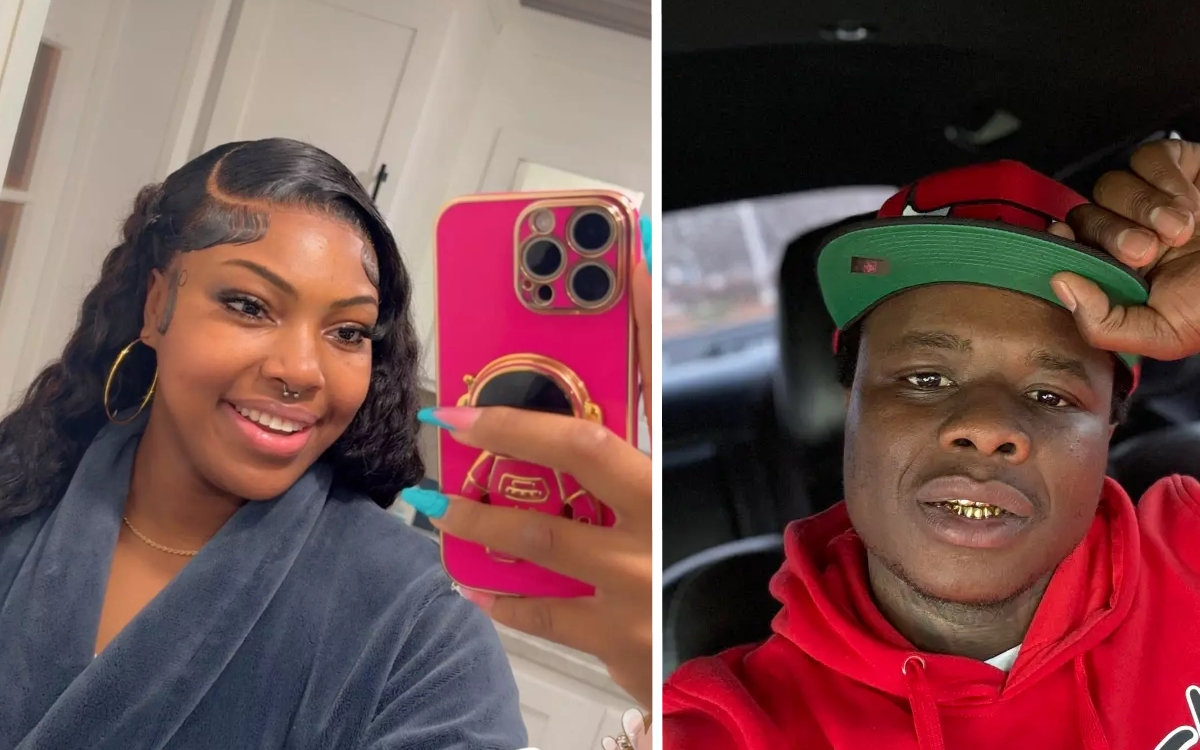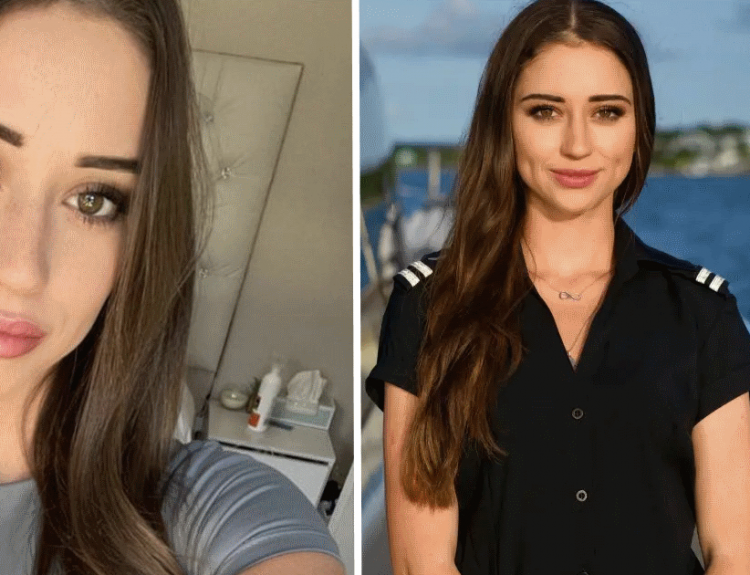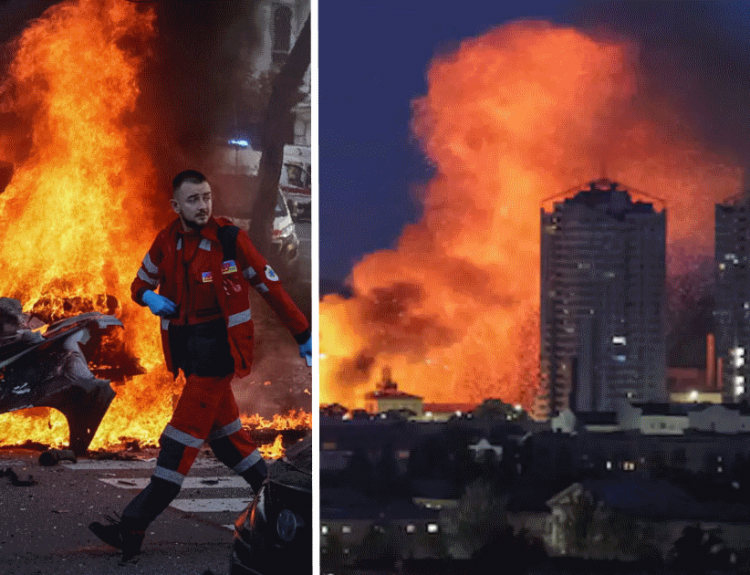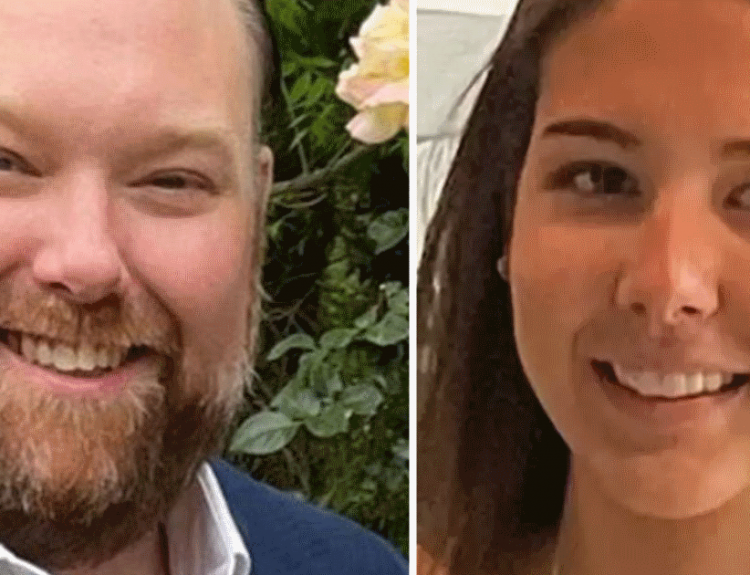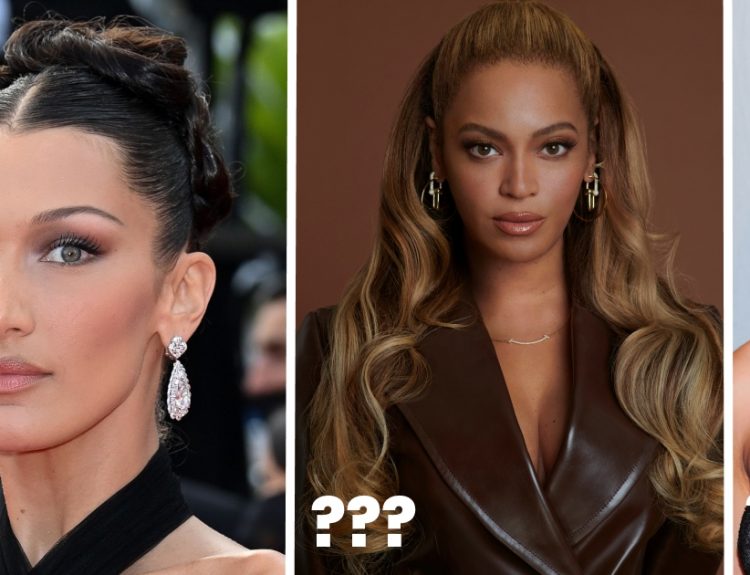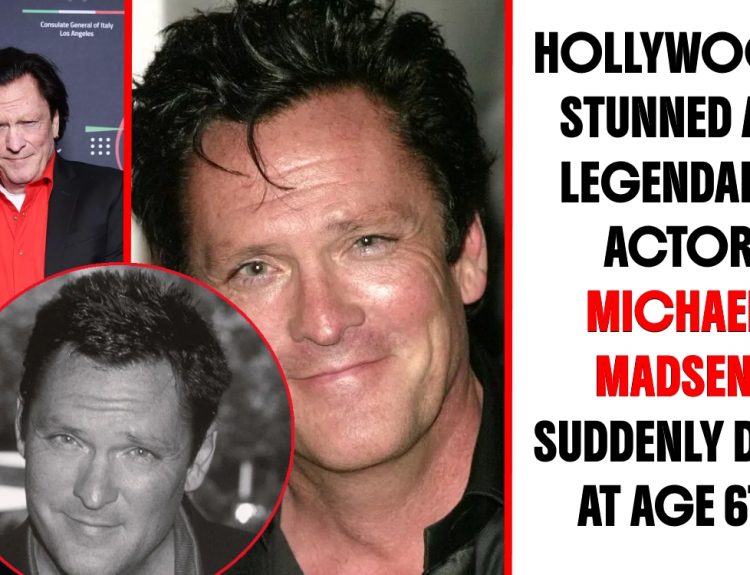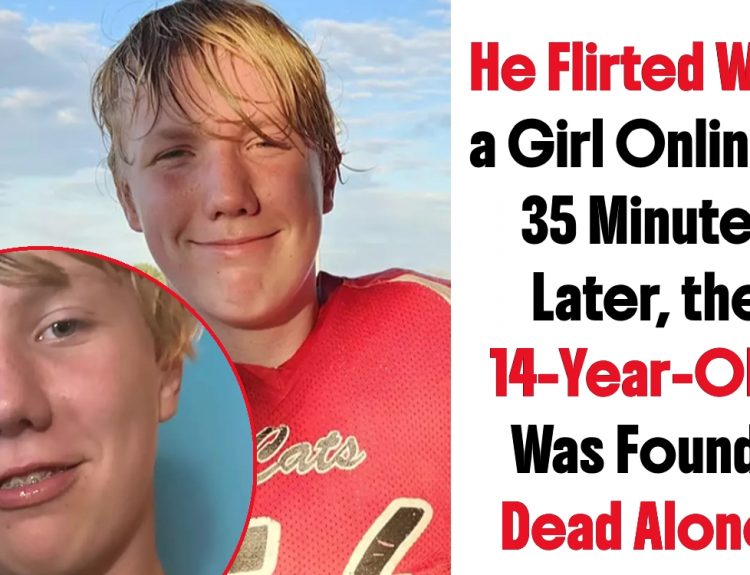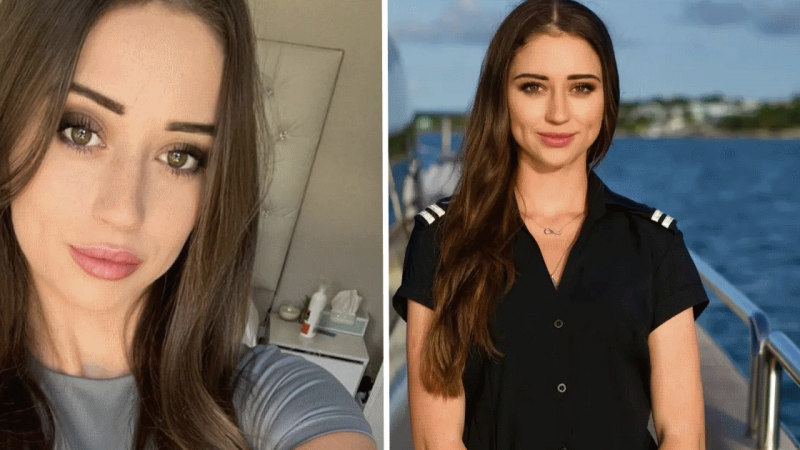When 34-year-old wellness influencer Maya Sinclair didn’t respond to her usual 6 a.m. live-stream, fans assumed she’d slept in—until her husband, mortgage broker Daniel Sinclair, drove to their suburban Atlanta home and found her unresponsive on the living room floor, phone in hand. Paramedics pronounced Maya dead at the scene, and less than four hours later, Daniel was discovered in their bedroom with a self-inflicted gunshot wound. Hours before their tragic deaths, Maya had posted an unsettling message on Facebook: a black-and-white photo of the couple smiling at a charity gala, overlaid with the caption, “Sometimes the brightest smiles hide the darkest secrets,” a post that viewers now describe as a chilling foreshadowing of the events to come (WSB-TV report).
Friends of Maya, known online as @MayaMindful, say the post was unlike her usual content—she typically shared morning yoga routines, gluten-free recipes, and motivational quotes on her Facebook page. “She was the picture of positivity,” recalled colleague and fellow content creator Jess Harper. “But that Friday night post gave me pause. I thought maybe it was just dramatic flair for engagement—never did I imagine it was real.”
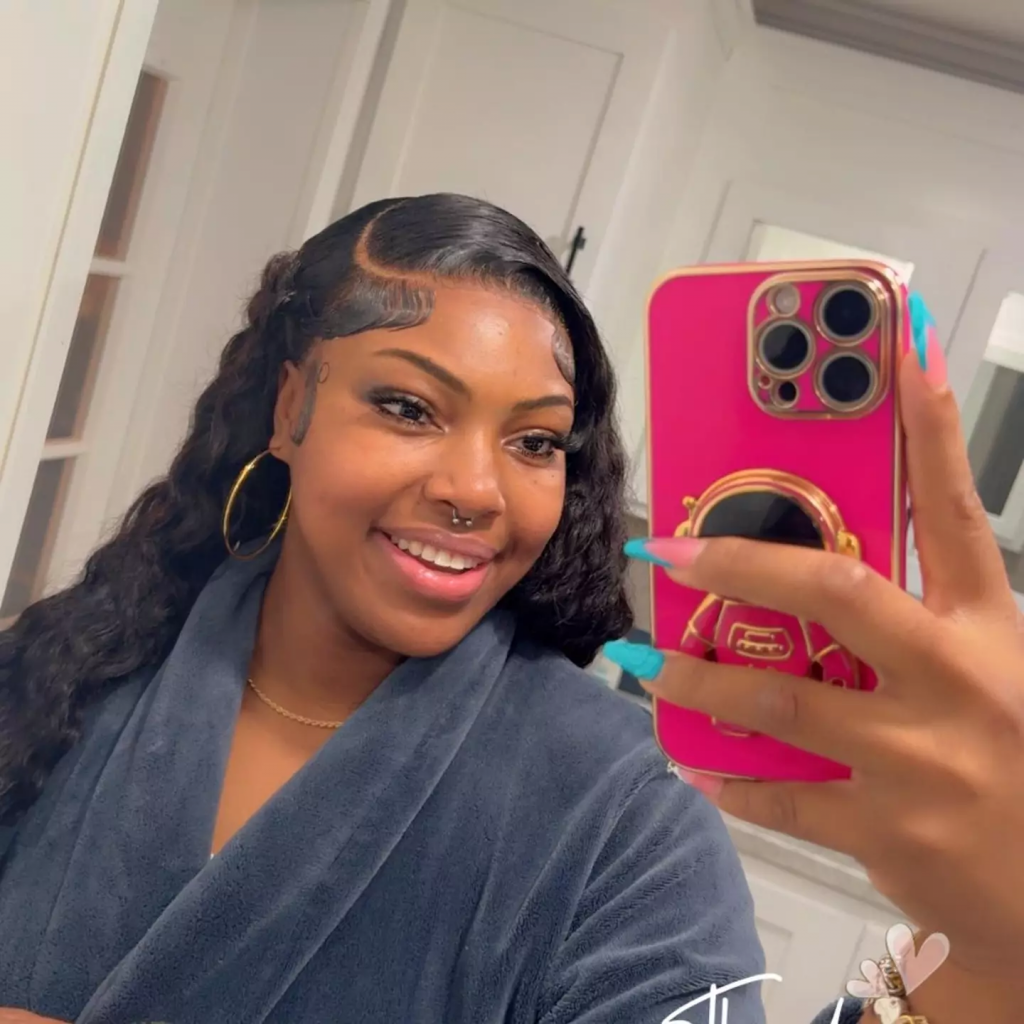
@JessHarperYogi “Maya’s post wasn’t her style—it felt raw, urgent, and now unbearably prophetic.” via X
In the days leading up to the incident, Maya had been livestreaming less frequently and posting more sporadically, according to analytics from Social Blade. View counts dipped by 30 percent as she began tagging posts with #FeelingLost and #BreakingTheSmile—hashtags she’d never used before. Those who messaged her directly said she replied with vague assurances—“Just going through stuff, will be back soon!”—but refused to elaborate.
Daniel, 36, had been supportive publicly, often filming behind-the-scenes clips of Maya’s fitness shoots and adding his own humor in the comments, earning him thousands of followers as @DanSinclairBroker on Instagram. But close friends tell a different story: the couple’s marriage had become strained under the pressures of Maya’s growing brand and Daniel’s long hours in real-estate financing. At a barbecue last month, neighbor Laura Mitchell observed them in what she described as a “heated discussion” over dinner, witnessed in Atlanta Journal-Constitution coverage. “Maya looked frustrated, Daniel looked wounded,” Mitchell recalled. “I thought they were just stressed about work.”
That stress may have been exacerbated by Maya’s recent foray into sponsored content deals. According to contract summaries obtained by Adweek, she had signed a six-figure partnership with a CBD wellness brand last month—but was anxious about meeting deliverables, expressing doubt about how well the products actually worked. Business partner Elena Cruz told Forbes that Maya often felt torn between authenticity and the financial demands of her influencer lifestyle, confessing “I don’t know if this is helping people or just helping my bank account.”
@Adweek “Sinclair’s rapid rise reflects the precarious balance between content creation and personal well-being.” via X
Mental-health experts say Maya’s final Facebook post and her abrupt shift in tone mirror warning signs of depression and suicidal ideation. Dr. Felicia Gomez, a psychiatrist at Emory University, noted in a special segment on CNN Health that “public personas often mask private suffering, and influencers are under constant pressure to appear upbeat, making it harder to admit vulnerability.” She emphasized that statements like “brightest smiles hide darkest secrets” should prompt immediate outreach from friends, family, or professionals.
Indeed, Maya’s close friend and videographer, Marcus Lee, saw the post at midnight but delayed contacting her until morning, assuming it was hyperbole. “I regret not calling her right away,” he told NPR. “I thought she’d text back by breakfast. I never imagined…” His voice trailed off.

Meanwhile, Clayton County police, who responded to Daniel’s 911 call, released redacted audio in which he whispered, “She’s… gone,” before hanging up. Body-camera footage shows officers rushing past children’s toys in the hallway—evidence, they say, that the couple had been trying to start a family. In their bedroom, a wedding portrait dated 2018 stared back at them: Maya in a flowing white dress, Daniel in a tailored suit, beaming with hope.
The tragedy has spurred a groundswell of online grief and calls for better mental-health support for social-media creators. Nonprofit @CreatorsAware launched an emergency fundraiser to provide free counseling to influencers and their families, linking to a helpline via X. CEO Mari Sanchez stressed that “our industry celebrates reach and revenue, but neglects the emotional toll of constant visibility.”
@CreatorsAware “We must protect the protectors—those who uplift others online often lack support themselves.” via X
In local community centers, grief counselors report a surge of callers who say they recognized Maya’s last post as a cry for help. Fulton County’s Crisis Response Team is organizing workshops on “Recognizing Silent Cries” in partnership with the American Foundation for Suicide Prevention, details posted on their website.
As investigators continue to piece together the timeline—reviewing phone logs, social-media exchanges, and the couple’s calendar of events—many remain haunted by the couple’s final hours. Neighbors mention seeing Maya’s car pull into the driveway around 8 p.m. Saturday, but no one heard the gunshot until paramedics arrived at dawn. Daniel’s final text message to his sister, sent at 5:47 a.m., read simply: “I love you,” a message she says she saved to her phone.
For those who knew Maya and Daniel, the void is immense. At the couples’ favorite hiking trail—a place they often filmed sunrise meditations—friends laid flowers and posted Polaroids of Maya’s radiant smiles. #RememberMayaDaniel trends on Instagram as fans share clips of her guided breathwork sessions and Daniel’s playful outtakes, preserving moments of joy amid tragedy.
In the end, Maya’s urgent warning about hidden pain echoes far beyond her final post. It serves as a stark reminder that subtle shifts—an unusual social-media caption, a fleeting expression on screen—can be life’s way of asking for help. And when those signals go unanswered, the consequences can be heartbreakingly irreversible.

